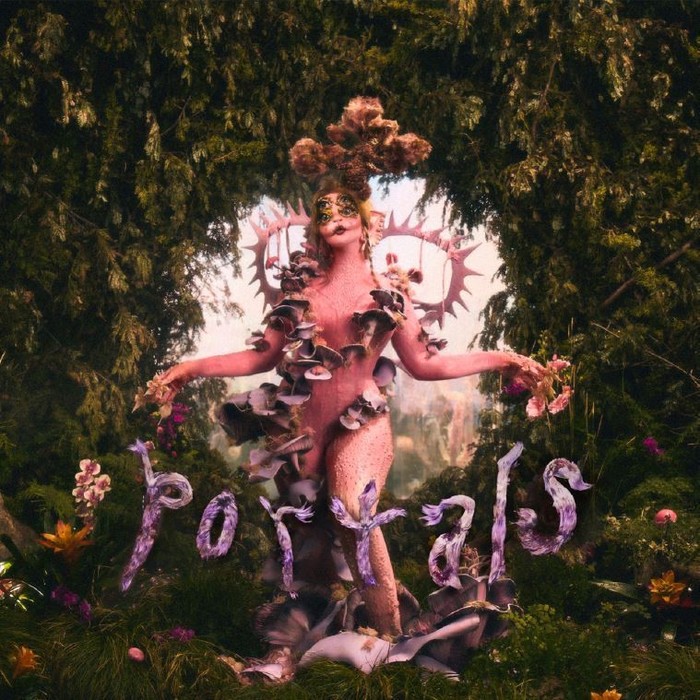Cry Baby
 Melanie Martinez
Melanie Martinez
LPA
- Cry Baby [Explicit]
- Dollhouse
- Sippy Cup [Explicit]
- Carousel
- Alphabet Boy [Explicit]
- Soap
LPB
- Training Wheels [Explicit]
- Pity Party
- Tag, you're it
- Milk and Cookies [Explicit]
- Pacify Her
- Mrs. Potato Head
- Mad Hatter
Melanie Martinez wants to tell you a story. It’s fictional, but it’s also about her, in a way that’s somewhat exaggerated and darker than reality. The tale traces through Melanie’s debut album Cry Baby, a collection of pop songs that draw inspiration from singer-songwriter folk and hip-hop and follow a character who learns to be more comfortable with who she is. The journey of the character, who Melanie dubbed Cry Baby, mirrors the musician’s own.
“I’ve always felt like I was a cry baby,” Melanie says. “I’m so emotional and I take things very personally, and I’ve been made fun of for that. The name has stuck with me. This album is me figuring out how to embrace being imperfect and accepting the things I can’t change about myself, and being happy and comfortable with who I am. In the beginning, when I started writing, I was insecure. As the album went on I got more comfortable with myself. It’s interesting because what happens to my character also happened to me through the writing process of the album.”
The inspiration for Cry Baby struck when Melanie, who hails from Baldwin, NY, became obsessed with vintage toy sounds. The musician began writing songs and playing guitar at 14, combining her loves for poetry and music. She taught herself to play since her parents couldn’t afford to send her to guitar lessons, and was influenced both by her dad’s predilection for old school hip-hop and her own interest in folk songwriters like Regina Spektor and Feist. After appearing on The Voice, Melanie signed with Atlantic and headed into the studio to begin writing songs. During an early session, after Melanie asked her producer to play some toy sounds, she came up with “Dollhouse,” the origin of the story.
“I was sick of writing on guitar and I was looking for something different,” Melanie explains. “I immediately came up with lyrics and melodies when I heard the toy sounds. ‘Dollhouse’ was the first song that I was really excited about. It was like magic. It helped create this world and I wanted to keep writing songs that were inside that world.”
The album, which Melanie created with producers and songwriters like Kinetics & One Love, embraces childlike themes and imagery, connecting each song together like a children’s storybook. But the recent adult experiences in Melanie’s own life, with relationships and heartbreak and self-discovery, are juxtaposed against these young aesthetics in a deeply interesting way. “Carousel,” which also appeared on last year’s Dollhouse EP and was used to soundtrack a trailer for FX’s American Horror Story: Freak Show, conjures up a carnival to reveal Melanie’s feeling of being stuck in a cyclical relationship.
“I got into this zone to write songs where the titles came first,” she says. “I made a list of all these things that reminded me of my childhood and I would relate each to a current situation I was going through. ‘Carousel’ ended up being about a relationship that felt like we were going around in circles and never able to reach one another. I like the contrast between the theme of childhood and the adultness of the situation.”
“Pity Party,” which Melanie made with Kara Dioguardi and CJ Baran, revisits Lesley Gore’s 1965 classic “It’s My Party.” The single, a buoyant pop number that draws in ambient trip-hop beats and string augmentation, is a cathartic release, both musically and for Melanie lyrically. The familiar, catchy chorus draws you in, urging the listener to participate in Cry Baby’s fury. “It’s a turning point on the album for the character of Cry Baby,” Melanie says. “No one shows up at her party and she goes absolutely crazy. She becomes a different person after that. The song changes her and she goes from being overly emotional to a harder person. It’s her coming to terms with herself.”
The visuals for the album go hand-in-hand with Melanie’s narrative themes. The singer, a practiced photographer since childhood, took a lot of the accompanying photos and directed the colorful video for “Pity Party.” She’s interested in bright, candy-colored imagery that reimagines these moments from childhood, often filtering them through a darker lens or exaggerating their tones. Thanks to Melanie’s clear vision, her videos have become fast viral hits. “Carousel,” which landed in the Top 10 on the iTunes Alternative Chart, has over 7 million views on YouTube, while “Dollhouse” has earned over 19 million views and counting. “Dollhouse” has also remained on the iTunes Alternative Songs Chart for well over a year since its release in February 2014.
For Melanie, who hopes to create a live show that reveals the story of Cry Baby visually onstage, music is an artform, one that asks for something more interesting than a simple song. The musician, who has embarked on several headlining tours and recently opened for Lindsey Stirling, looks for ways to make each song different and express as much of herself in it as she can. Her story can become yours.
“I want it to help anybody who felt like they were a cry baby growing up,” Melanie says. “Writing this album made me more comfortable in my own skin. Through the process I accepted myself and who I am. I hope it can do that for someone else when they listen to it.”













